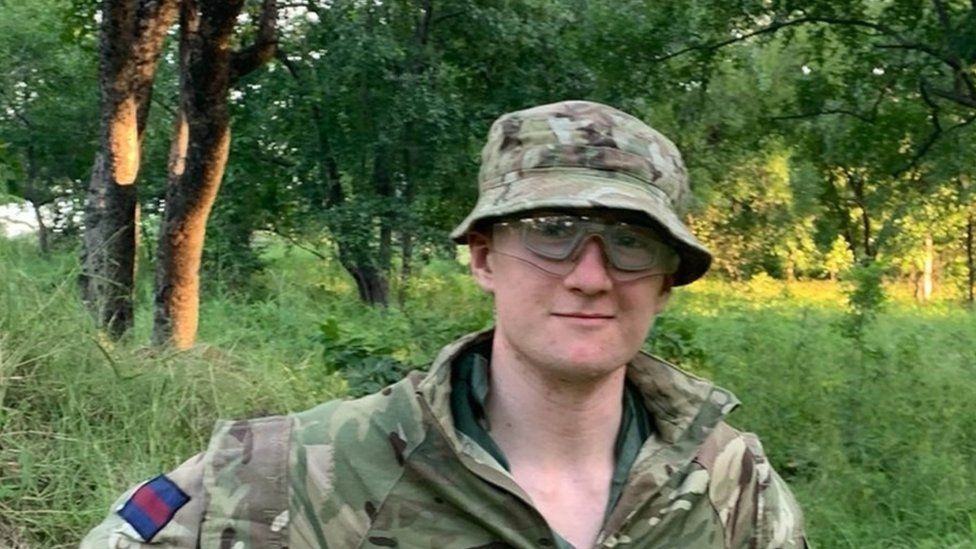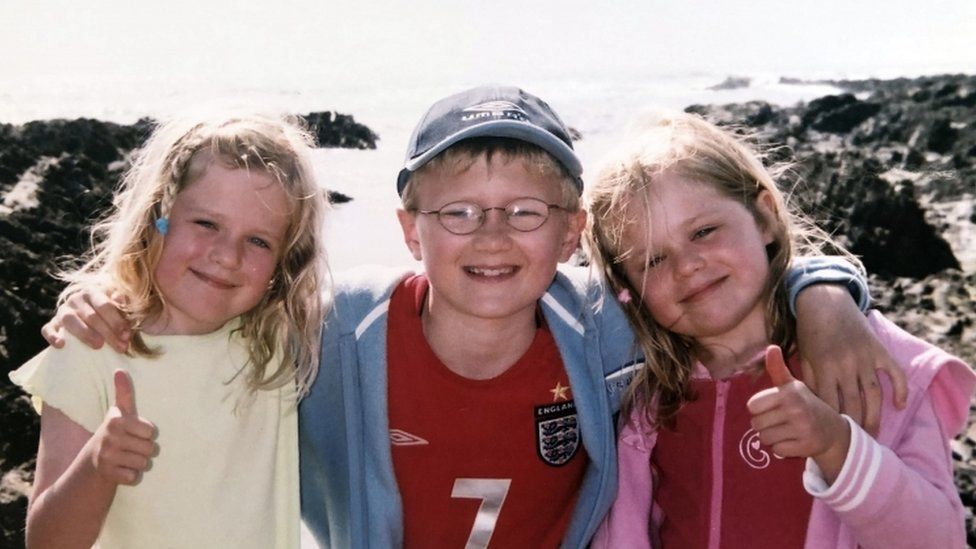A British soldier killed by an elephant charge was “deprived of one of the main protective measures” after a ban on the use of warning shots, a coroner said.
Coldstream Guardsman Mathew Talbot, 22, suffered fatal injuries on an anti-poaching patrol in Liwonde National Park, Malawi, in May 2019.
His inquest heard evidence that warning shots against dangerous game had been banned under the Army’s rules.
The coroner said the reasons for this prohibition were “not entirely clear”.
Senior coroner Darren Salter was told at the week-long inquest the use of force rules had since been changed, allowing warning shots on anti-poaching operations.
Gdsm Talbot, from Great Barr, West Midlands, suffered fatal chest and soft tissue injuries while on day three of an eight-day patrol.
The 22-year-old, who “loved the Army”, was part of a five-man mixed Malawian and British group on his first operational tour when he was attacked.
His parents, Steve and Michelle Talbot, said their son was “badly let down by” Army planners.
Gdsm Talbot and his patrol were navigating through two-metre-high elephant grass when they spotted three elephants 30 metres ahead.
As they tried to backtrack, the soldier was injured when another elephant, unseen, charged the patrol from the side.
 IMAGE SOURCE,FAMILY HANDOUT
IMAGE SOURCE,FAMILY HANDOUTThe inquest was previously told the patrol began running in different directions and Gdsm Talbot attempted to climb a “prominent branch” but was seen being “thrown” and “knocked” into the air.
A Ministry of Defence (MOD) service inquiry, published in October 2020 and shared with the inquest, concluded there had been several failings and made 30 recommendations.
At Oxford Coroner’s Court, Mr Salter said the availability of a person medically qualified to insert a chest drain to treat Gdsm Talbot and the presence of a medical helicopter “may have led to Mathew’s survival”.
Turning to three “contributory causes” to the death, Mr Salter said it was known from two previous deployment patrols that elephant grass should be avoided.
“This should have been made clearer, particularly when the helicopter was unavailable,” he said.
“Secondly, the wrong immediate actions for an elephant attack; namely climbing a tree, taken in the heat of the moment.”
He said refresher training should take place and a reinforcement of the correct actions to be taken when faced with an elephant attack.
Turning to the third factor, the use of warning shots, he said: “To be honest, I am still not entirely clear why they were not permitted.
“I’ve heard reasons they weren’t permitted – but those reasons don’t seem terribly convincing.
“But the result of that is Mathew and his fellow soldiers were deprived of one of the main protective measures.”
 IMAGE SOURCE,FAMILY HANDOUT
IMAGE SOURCE,FAMILY HANDOUTMr Salter said: “I note actually in terms of contributory causes, those three things; patrolling in elephant grass, the wrong immediate actions, and the prohibition of warning shots are essentially the three contributory causes identified by the service inquiry.”
The coroner found there was initial “highly commendable” lifesaving treatment in the field, but progress was slow over the rough terrain and Gdsm Talbot suffered a cardiac arrest and died more than four hours after the incident – the hospital still two hours’ drive away.
“If Gdsm Talbot had reached hospital within four hours of sustaining injuries, it is likely he would have survived,” Mr Salter said.
In September 2019 the Duke of Sussex honoured Gdsm Talbot by laying a wreath at a memorial during a visit to the national park.
Mr Salter gave a narrative conclusion.



No comments:
Post a Comment
Note: only a member of this blog may post a comment.